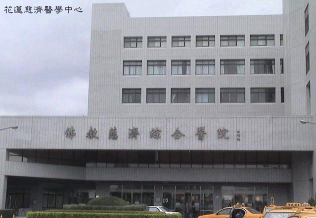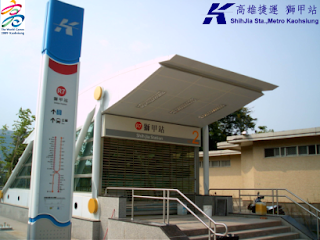最近,一家英國旅遊公司Travelcare開始對他們的顧客販售碳補償方案,他們的顧客如果想飛到西班牙,就必須先付3英鎊的額外費用,這個費用將用在發展中國家的一些環保計畫上,例如建造風車農場或更有效率的烹調爐具,據稱可免除這些旅客因飛航旅行導致氣候變遷的責任。
英國石油及Travelcare旅遊公司像其他公司一樣,最在乎的還是拓展事業版圖,而碳補償方案使他們能夠一面賺錢,一面假裝他們也是環保的。碳補償其實只是用來作為高耗碳活動無止境拓展的藉口,那些活動絕對不會是唯一的問題點。
今日,我們馬上減少一噸碳排放量的效益,會遠比3年內節約一噸高,而幾乎所有碳補償方案都需要很長時間來彌補我們目前所釋放的碳。據了解,目前沒有任何一家販售碳補償方案的公司,會以折扣的方式來進行他們聲稱的碳補償(都是要求顧客多付錢),以折扣方式進行碳補償至少可以反應現在及未來的價值差異。這代表這些公司都可能是並非刻意,卻系統性地作假帳。
況且,當我們開車或是飛航所排放的碳量是可以被確實測量的時候,這些排放量被碳補償方案所吸收的程度卻是無法計算的。有些方案可能會成功且持續進行一段時間,其他特別是那些以植樹為名,實際卻進行強行掠奪土地的方案則注定要失敗。
要宣稱自己在碳節約計畫的貢獻,我們還必須展現個人在這些方案中,扮演著不可或缺的角色,例如墨西哥農民從豬舍中回收甲烷,或是自願買新爐具取代舊式耗能的印度民眾。也就是說,我們必須為未來的變化作深切思考。目前,我們也許可以從販售碳補償公司那裡買到自我滿足,作為對公共事務漠不關心的藉口,但是我們無法買到地球的生命。
The trade in carbon offsets is an excuse for business as usual
By George Monbiot. Published in the Guardian 18th October 2006
Rejoice! We have a way out. Our guilty consciences appeased, we can continue to fill up our SUVs and fly round the world without the least concern about our impact on the planet. How has this magic been arranged? By something called “carbon offsets”. You buy yourself a clean conscience by paying someone else to undo the harm you are causing.
The Co-op’s holiday firm Travelcare has just started selling offsets to its customers. If they want to fly to Spain, they pay an extra £3. Then they can forget about their contribution to climate change. The money will be spent on projects in the developing world, such as building wind farms and more efficient cooking stoves. In August, BP launched its “targetneutral” scheme, enabling customers to “neutralise the CO2 emissions caused by their driving”(1). The consequences of an entire year’s motoring can be discharged for just £20. Again, your money will be invested in the developing world – “a biomass energy plant in Himachal Pradesh; a wind farm in Karnataka, India and an animal waste management and methane capture program in Mexico” – and you need have no further worries about what you and BP are doing to the atmosphere (or, for that matter, to the people of West Papua or the tundra in Alaska).
It sounds great. Without requiring any social or political change, and at a tiny cost to the consumer, the problem of climate change is solved. Having handed over a few quid, we can all sleep easy again.
This is not the first time that such schemes have been sold. In his book The Rise of the Dutch Republic, published in 1855, John Lothrop Motley describes the means by which the people of the Netherlands in the 15th and 16th centuries could redeem their sins. “The sale of absolutions was the source of large fortunes to the priests. ... God’s pardon for crimes already committed, or about to be committed, was advertised according to a graduated tariff. Thus, poisoning, for example, was absolved for eleven ducats, six livres tournois. Absolution for incest was afforded at thirty-six livres, three ducats. Perjury came to seven livres and three carlines. Pardon for murder, if not by poison, was cheaper. Even a parricide could buy forgiveness at God’s tribunal at one ducat; four livres, eight carlines.”(2)
Just as in the 15th and 16th centuries you could sleep with your sister and kill and lie without fear of eternal damnation, today you can live exactly as you please as long as you give your ducats to one of the companies selling indulgences. It is pernicious and destructive nonsense.
The problem is this. If runaway climate change is not to trigger the irreversible melting of the Greenland and West Antarctic ice sheets and drive hundreds of millions of people from their homes, the global temperature rise must be confined to 2C above pre-industrial levels. As the figures I have published in Heat show, this requires a 60% cut in global climate emissions by 2030, which means a 90% cut in the rich world. Even if, through carbon offset schemes carried out in developing countries, every poor nation on the planet became carbon-free, we would still have to cut most of the carbon we produce at home. Buying and selling carbon offsets is like pushing the food around on your plate to create the impression that you have eaten it.
Any scheme that persuades us we can carry on polluting delays the point at which we grasp the nettle of climate change and accept that our lives have to change. But we cannot afford to delay. The big cuts have to be made right now, and the longer we leave it, the harder it will be to prevent runaway climate change from taking place. By selling us a clean conscience, the offset companies are undermining the necessary political battle to tackle climate change at home. They are telling us that we don’t need to be citizens; we need only be better consumers.
BP and Travelcare, like other companies, want to keep expanding their business. Offset schemes allow them to do so while pretending they have gone green. Yet aviation emissions, to give one example, are rising so fast in the UK that before 2020 they will account for the country’s entire sustainable carbon allocation(3). A couple of decades after that, global aircraft emissions will match the sustainable carbon level for all economic sectors, across the entire planet. Perhaps the carbon offset companies will then start schemes on Mars and Jupiter, as we will soon need several planets to absorb the carbon dioxide we release. Offsets, in other words, are being used as an excuse for the unsustainable growth of carbon-intensive activities.
But these are by no means the only problems. A tonne of carbon saved today is far more valuable in terms of preventing climate change than a tonne of carbon saved in three years’ time. Almost all the carbon offset schemes take time to recoup the emissions we release today. As far as I can discover, none of the companies which sell them uses discount rates for its carbon savings (which would reflect the difference in value between the present and the future). This means they could all be accused of unintentional but systemic false accounting.
And while the carbon we release by flying or driving is certain and verifiable, the carbon absorbed by offset projects is less attestable. Many will succeed, and continue to function over the necessary period. Others will fail, especially the disastrous forays into tree-planting that some companies have made. To claim a carbon saving, you also need to demonstrate that these projects would not have happened without you -that Mexico would not have decided to capture the methane from its pig farms, or that people in India would not have bought new stoves of their own accord. In other words, you must look into a counterfactual future. I have yet to meet someone from a carbon offset company who possesses supernatural powers.
At the offices of Travelcare and the forecourts owned by BP, you can now buy complacency, political apathy and self-satisfaction. But you cannot buy the survival of the planet.
George Monbiot’s new book, Heat: how to stop the planet burning is published by Penguin. He has also launched a website – www.turnuptheheat.org – exposing the false environmental claims of companies and politicians.
References:
1. See http://www.targetneutral.com
2. John Lothrop Motley, 1855. The Rise of the Dutch Republic: Part 2, Chapter 11. http://historicaltextarchive.com/books.php?op=viewbook&bookid=60&cid=11
3. Extrapolated from Alice Bows, Paul Upham and Kevin Anderson, 16th April 2005. Growth Scenarios for EU & UK Aviation: contradictions with climate policy. Report for Friends of the Earth Trust Ltd. Tyndall Centre for Climate Change. http://www.foe.co.uk/resource/reports/aviation_tyndall_research.pdf












